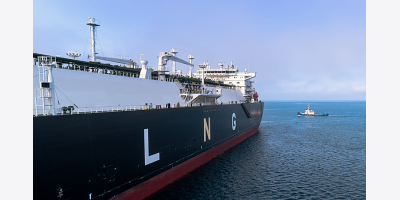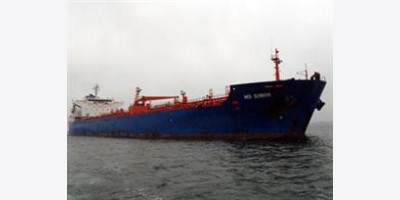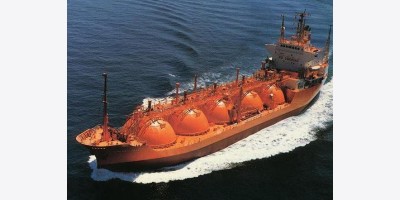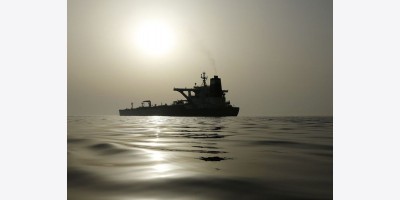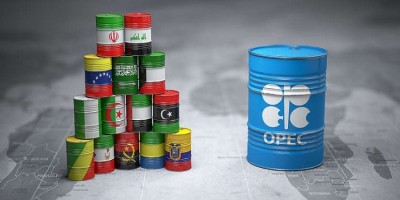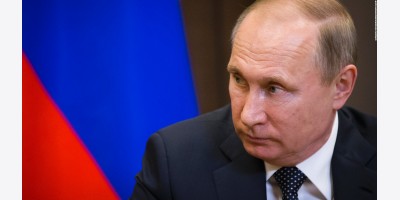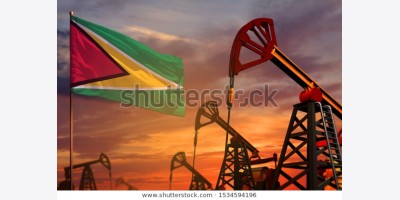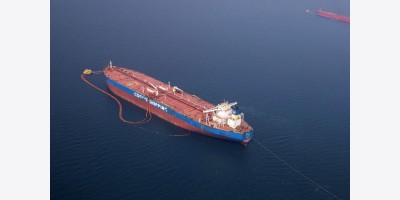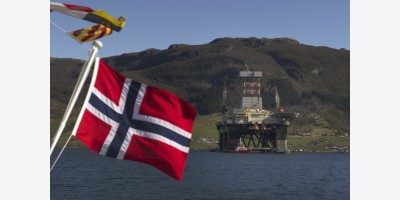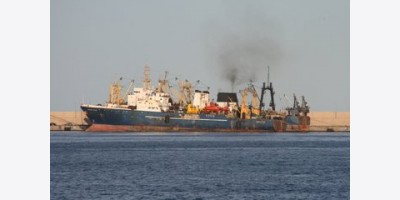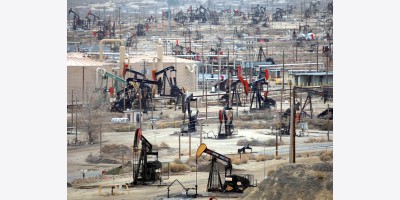
Saudi Arabia, Iraq, the UAE and Kuwait have helped to offset supply shock rise by increasing Opec production levels, now above 30 million barrels a daySaudi Arabia, Iraq, the UAE and Kuwait have helped to offset supply shock rise by increasing Opec production levels, now above 30 million barrels a day
Brent crude oil is flat in the $107-$108 range, even though Russia’s annexation of Crimea has led to US and EU sanctions against the Kremlin and a sharp rise in natural gas prices. The reason the oil market did not see a major “supply shock” rise in oil prices is due to higher US dollar interest rates, pressure on industrial commodities and a possible fall in import demand in China due to its banking/credit problems. In addition, US shale oil production has led to excess Angolan and Nigerian Bonny Light crude oil cargoes, no longer needed in the US, diverted to the world tanker spot markets in Rotterdam. The rise in Iraqi crude oil production to 3.6 million barrels a day has eased heavy sour crude supply risk for Asian refineries and utilities. Still, the Ukraine crisis will have a profound impact on the politics, pipeline networks, transportation flows, and financing/banking and production/exploration economies of the international oil markets. Unlike the Georgia war in August 2008, the Crimean crisis has led to the most serious East-West confrontation since the end of the World War and the Soviet Union in 1991.
The most immediate impact of the crisis is on the Russian economy, banking system, capital flight and sovereign credit. Fitch and Standard & Poor’s have both cut Russian credit ratings, meaning state-owned oil and gas companies will face higher borrowing easts in the international debt market. This means Rosneft and Gazprom could be forced to cut Capex or new ventures in the Artic, hitting production in the world’s leading energy producer.
The Russian stock market has lost $150 billion since the riots in Kiev led to President Yanukovych’s overthrow in Ukraine and the subsequent Russian military intervention in Crimea. This makes it difficult for Russia to attract foreign capital at a time when oligarch capital flows have risen to $70 billion a year. Russian banks are also exposed to $30 billion in loans to Ukraine and Belarus, which is another source of systemic balance sheet risk. The rouble has fallen 10 per cent against the US dollar in 2014. The lower rouble and sanctions mean a higher imported inflation rate in Russia. Some economists even predict the Russian economy will go into recession once US and EU sanctions are extended.
Restrictions on Russian oil and gas sales to the EU or US will be a disaster since oil and gas is no less than 50 per cent of the Kremlin budget and 72 per cent of Russian gas exports are headed to the EU, mostly via Ukraine’s transit pipeline network that is no longer under Kremlin control. President Putin has not hesitated to use its state-owned oil and gas companies as instruments of Russian foreign policy, such as his Ukraine gas cuts off, subsidised gas exports to the Uzbekistan and Belarus dictatorships, state bank loans finance Central Asian energy projects or construction of the Gazprom pipelines to Mongolia and China.
However, Russian banks, mining conglomerates and oil and gas companies raise capital in the New York and London money markets and the shares of Gazprom, VTB Bank, Rosneft, Lukoil, etc, are all listed on Western stock exchanges. If sanctions force Western investors to sell their holdings in Russian companies, Russian recession risk is almost certain. Pension funds could well decide not to invest in state owned companies in Russia, China or almost any other non-Western nation. This will have a major impact in the financing cost of oil and gas projects worldwide.
Geopolitical tensions in Russia, the Middle East, Venezuela and Nigeria will keep Brent prices above $105, at least until Moscow reassures Washington that it has no intention to invade Eastern Ukraine to “liberate” its ethnic Russian population. There are also rumours in the oil market that China will use any weakness in the oil market to build up its 80-million-barrel strategic storage reserve. China is far more vulnerable to oil supply shocks than the US or even Europe. Oil theft in Nigeria and tribal/militia control of oil terminals in Libya is a source of supply risk for Chinese crude oil traders and refineries. Royal Dutch Shell has declared force majeure on a Nigerian crude deal due to oil theft related pipeline leaks.
Ukraine’s new anti-Russian government in Kiev could deny Gazprom transit access to its pipeline network. This will be a disaster for Germany, which is dependent on Russian gas since Berlin has ordered the closure of nuclear reactors. This means relations between Kiev and Moscow is another source of geopolitical risk premium in the global oil and gas markets, in addition to Iran, Nigeria, Yemen, Sudan, Iraq and Libya.
Saudi Arabia, Iraq, the UAE and Kuwait have helped to offset supply shock rise by increasing Opec production levels, now above 30 million barrels a day. However, the IEA has reduced estimate of Chinese oil demand, as its industrial production growth rate falls. Heating oil and diesel demand in Europe is also weak and petroleum product prices have fallen.
The longer-term impact of the Crimean crisis includes a bigger market for Qatari, Emirati and Algerian LNG as Europe tries to reduce its gas dependency on Gazprom. Longer term, the US Congress will remove its ban on shale energy exports.
By: Sarie Khaled
The writer is a Dubai-based
research analyst in energy and
GCC economics.




